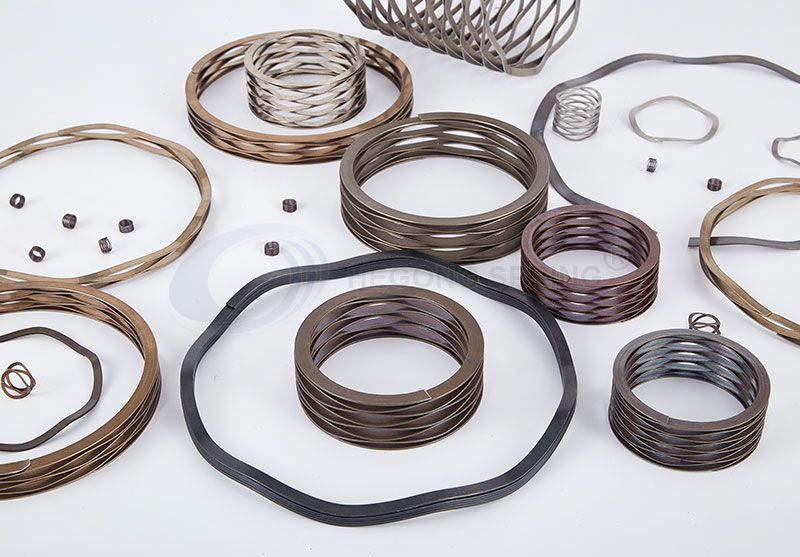This seemingly simple question unveils a world of engineering ingenuity and versatile applications. Wave springs are mechanical marvels designed to address specific challenges in various industries, offering a unique set of advantages over traditional coiled springs.

Wave springs derive their name from their distinctive undulating or wave-like structure. Unlike traditional coil springs, which are helical in nature, wave springs take on a flat, wavy form. This design innovation is rooted in the quest for compactness and efficiency in mechanical systems.
The genesis of wave disc spring can be traced back to the need for reducing axial space requirements while maintaining reliable spring force. Traditional springs, due to their coiled structure, demand more axial space, limiting their application in environments with space constraints. The flat profile of wave springs allows for a more efficient use of space, enabling engineers to overcome the spatial challenges posed by modern, compact designs.
The purpose of a wave spring becomes clearer when we delve into the precision of its design and functionality. Wave springs are meticulously engineered to provide a controlled force within a confined space. This is achieved through careful consideration of the amplitude, wavelength, and pitch of the waves in the spring.
The validation process involves rigorous testing to ensure that the wave spring maintains its structural integrity and performance under varying loads and conditions. Engineers scrutinize factors such as deflection characteristics, fatigue resistance, and load-bearing capacity to ascertain the reliability and longevity of wave springs in real-world applications.
The purpose of a wave spring extends beyond its compact design and precision engineering. These innovative springs find applications in a myriad of industries, from automotive and aerospace to medical devices and electronics. Their versatility stems from the ability to provide a consistent force while accommodating axial movement and absorbing shock and vibration.
In the automotive sector, wave springs contribute to the efficiency of transmission systems, where space is at a premium. In medical devices, they play a pivotal role in ensuring the reliability of intricate mechanisms. The electronics industry benefits from the use of wave springs in connectors and switches, where their compact design is a valuable asset.
In conclusion, the purpose of a wave spring lies in its ability to revolutionize the way we approach mechanical design challenges. Its inception was a response to the demand for more compact and efficient solutions, and its validation ensures reliability in diverse applications. The significance of wave springs is underscored by their impact across industries, marking them as a symbol of future-forward engineering—a wave of innovation that ripples through the intricate machinery of modern technology.
HEGONG is a professional Wave Spring Manufacturer and wave spring washer supplier in China.
Previous: None.
Copyright:@2020-2021
Comments Please sign in or sign up to post.
0
0 of 500 characters used